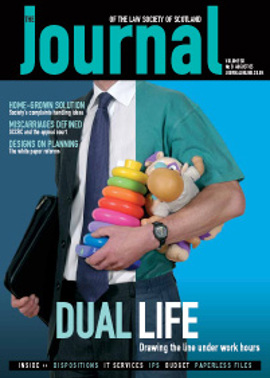Book reviews

The International Criminal Court
EDITORS: OLYMPIA BEKOU AND ROBERT CRYER
PUBLISHER: ASHGATE
ISBN: 0 7546 2409 9
PRICE: £135
There is no shortage of books (and articles) written on the International Criminal Court. The court opened for business only in 2002 and has not to this date heard a case. It seems clear that what has been and will be written about the court far outstrips any likely achievements.
The ICC is intended to be a “big fish” court, dealing with political and military leaders who commit the international crimes of genocide, war crimes and crimes against humanity. One suspects that it will end up as a “minnows” court to justify its existence if all it can get its hands on are people below the level of the political and military elite.
International terrorism is excluded from its jurisdiction on the strange notion that there already exists a regime of treaties providing for prosecution in national courts. But it would be absurd to suppose that national justice systems do not criminalise and prosecute the crimes within its remit. The utility of the ICC can only lie in its capacity to prosecute those ultimately responsible for egregious criminal acts where some national court cannot or will not prosecute.
The book’s merits: it reproduces in one convenient volume the leading articles on the court, carefully selected and balanced (including John Bolton, a notorious anti-ICC advocate), in five sections – the court’s history, substantive law, jurisdiction, operation and perspectives for the future. Its demerits: all the articles are available elsewhere, and subscribers to Lexis/Nexis, Westlaw and heinonline (or a good law library) might find better ways to spend £135. This is a book clearly intended for university law libraries – and poor law libraries at that.
John P Grant, Professor Emeritus, Glasgow University; Lewis & Clark School of Law, Portland, Oregon.
The Trial on Trial Volume 1: Truth and Due Process
EDITORS: A DUFF, L FARMER, S MARSHALL, V TADROS
PUBLISHER: HART PUBLISHING
PRICE: £35
ISBN: 1 84113 442 2
The target market for this collection of criminological essays was never likely to be the local bar common room. Indeed, some of the contributions give rise to a vaguely familiar sense of the yawning gap that can exist between study and practice within the criminal justice system, and the need for some form of synthesis if we are ever to get anywhere. Such a conjoined approach works both ways, of course, and digging a little deeper into this volume is likely to produce something valuable for any solicitor with more than a passing interest in the notion of the criminal trial.
Although essentially a book about legal theory, the basic themes are unlikely to alienate practitioners: Is the purpose of the criminal trial to establish truth? Is the adversarial process the most appropriate forum to achieve this? The answers posed are unlikely to surprise anyone with experience of our system of justice, but the analysis is sharp and comprehensive. Truth, the book reminds us, is elusive – it cannot be found, only reconstructed (and sometimes poorly at that). It is hardly surprising then when doubts are expressed as to whether the adversarial process, with each side manipulating the evidence in a manner most helpful to its case, its complex procedure rules and its inevitable tactics, is the most effective means of determining the truth. On the other hand, as research has to some extent shown (see Jenny McEwan’s contribution), simply because a judge is informed rather than passive, and more zealous in his pursuit of the facts, does not necessarily make for more “truthful” decision-making – quite the contrary it seems. Perhaps, then, any problem that exists is one of expectation.
The contributions are also notable for their sound awareness of the wider context, and of recent developments both in Scotland and England. In particular, Peter Duff’s foray into the technical world of intermediate diets and the agreement of uncontroversial evidence, is in fact a highly illuminating historical account of the development of procedure in this area, the concerns it (once) engendered, and the importation into our system of what are essentially inquisitorial practices. Matt Matravers’ piece on “jury nullification” (in which a jury deliberately acquits an accused in defiance of the evidence and law) is also interesting, although we in the UK would currently require to defy the law ourselves in order to establish the extent of such a phenomenon here.
Persevere with this book – although sometimes opaque, its purpose in stimulating ideas and provoking debate is largely achieved.
Robin Johnston, Scottish Criminal Cases Review Commission
In this issue
- Prosecuting bigotry offences
- A hotter than average July
- Advice for all, but what about justice?
- Calling time
- The anti-avoidance drive
- The best option?
- Radical design
- Miscarriages of justice
- Information technology
- IPS... keeping a watchful eye
- When less means better
- Reality check - not Big Brother
- A clear duty
- Missing a generation
- Does age matter?
- Fair picture?
- Book debts: the final word?
- Website reviews
- Book reviews
- Challenging the sacred cows of conveyancing






